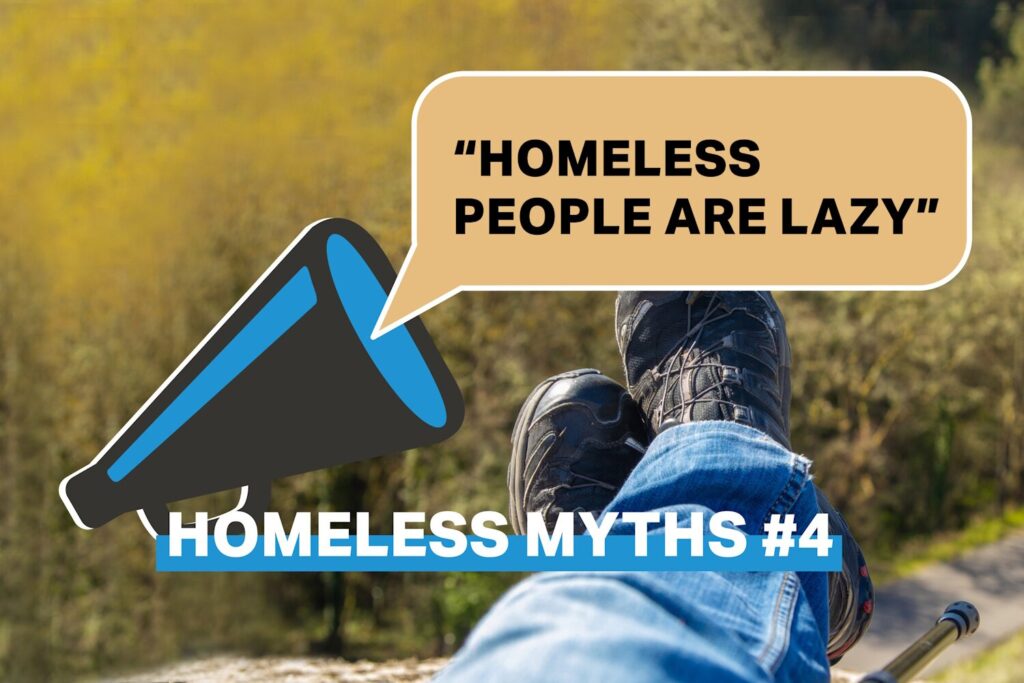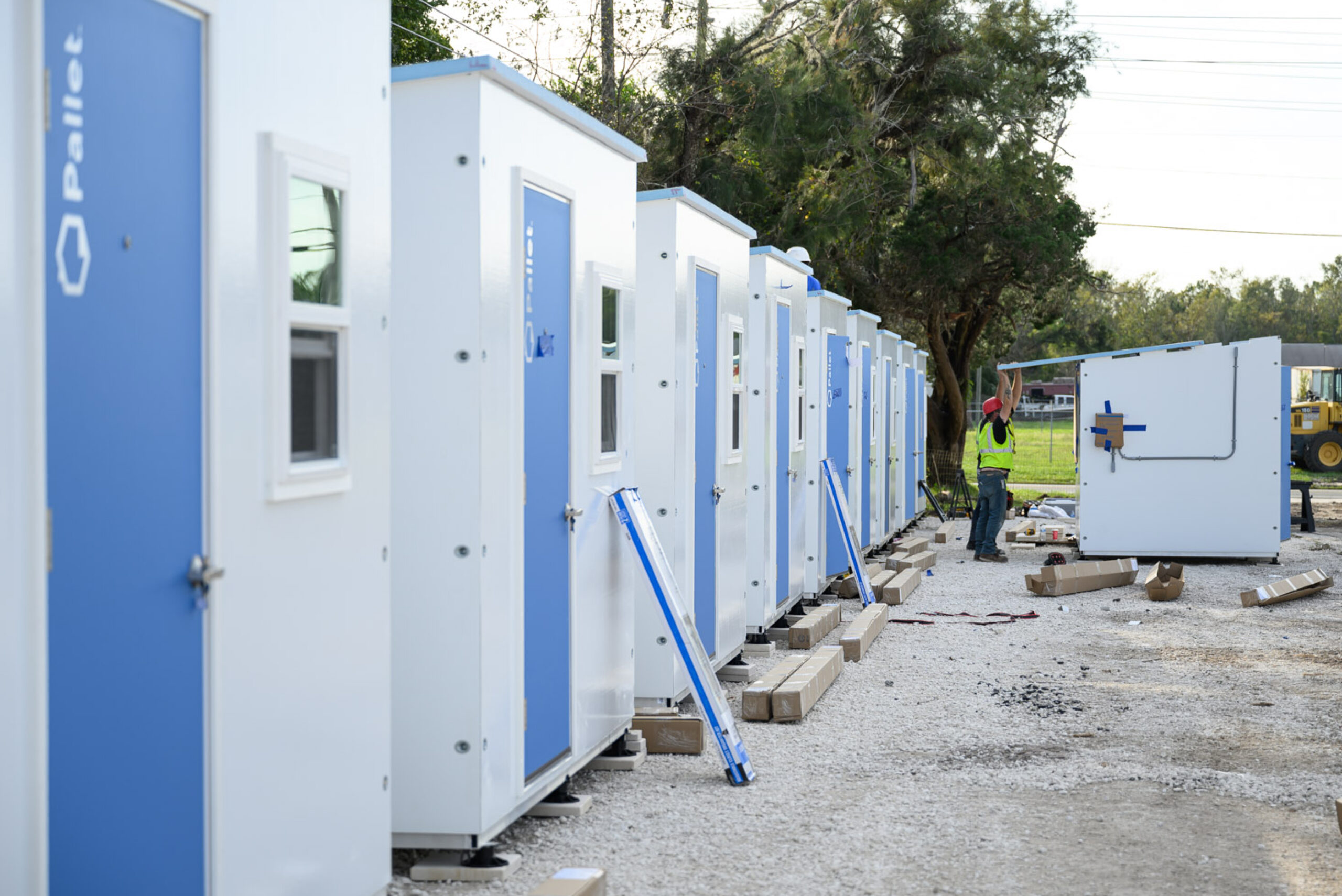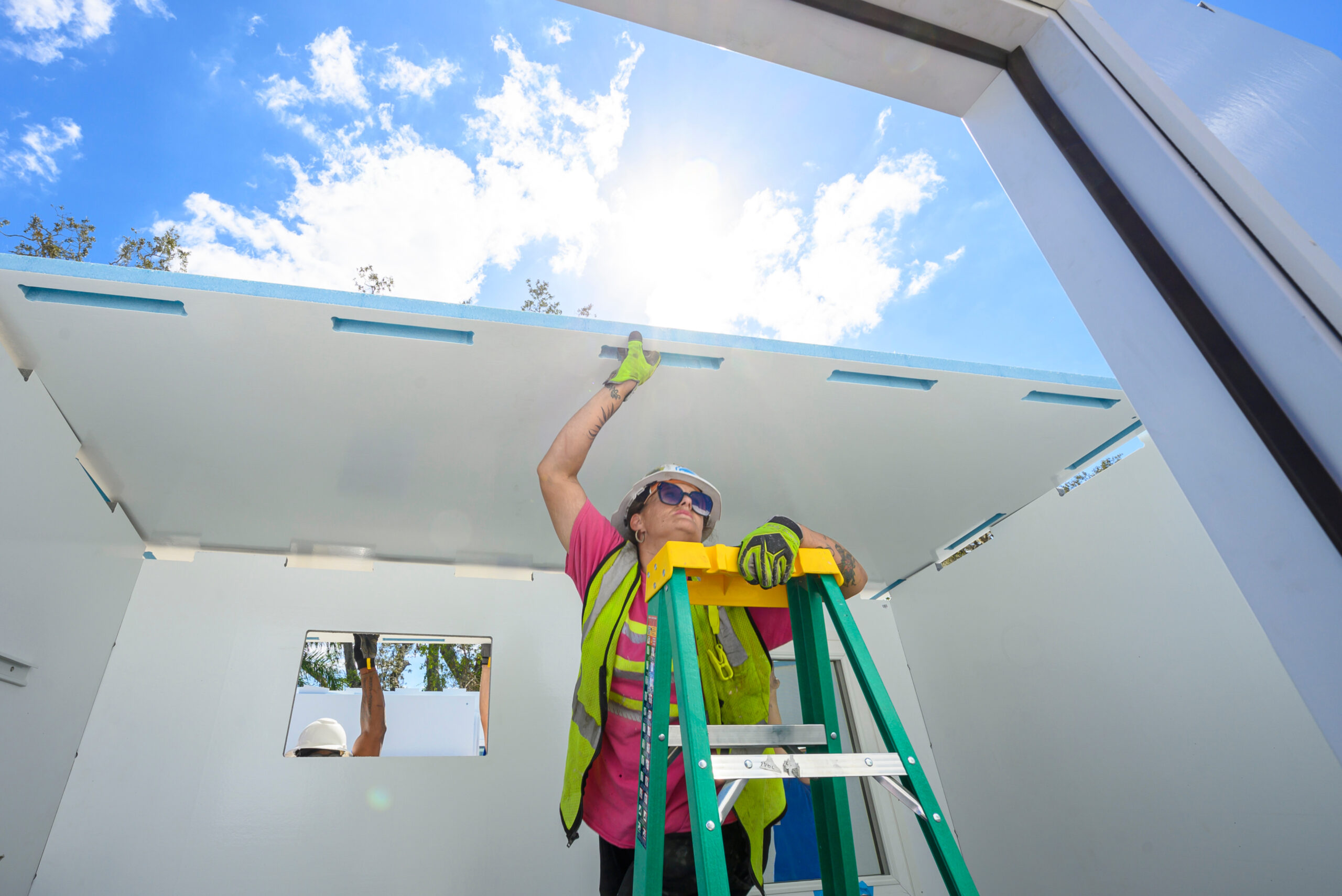Debunking Myths: Homeless people are lazy
March 11, 2022

Nationwide, more than half a million people are experiencing homelessness. While visible or unsheltered homelessness is growing, people without a stable place to stay at night are also couch surfing, living in their vehicles, hotels, and shelters.
One pervasive myth about our unhoused neighbors is they're lazy. This stereotype fails to consider the daily challenges of homelessness and the effort it takes to survive. The laziness falsehood is reinforced through decades of negative imagery in entertainment, rhetoric from some politicians, and judgment of visibly poor people. This myth is similar to the incorrect belief that people choose to be homeless. Unhoused people aren’t lazy. Some have jobs, but they don’t earn enough to afford a place to live.
Here's a look at available statistics:
It's estimated anywhere from 25% to 60% of people experiencing homelessness across the country are employed. There's a range because it isn't a standard metric captured in all local homeless counts or at the federal level.
Details from a 2017 Axios article:
"Josh Leopold, a researcher at the Urban Institute, said the percentage of homeless people who work may be close to 25%, maybe a little more. Megan Hustings, director of the National Coalition for the Homeless, suggested higher percentages — 40% to 60% of the homeless float in and out of both part- and full-time work, she said."
In the 2020 Seattle/King County Point-in-Time count, 21% of homeless people report having some employment. Specifically, 15% said they work part-time, and 6% work full-time.
The annual point-in-time count in the Metro Washington region — the District of Columbia, suburban Maryland, and Northern Virginia — showed overall 14% of adults experiencing homelessness on a single night in January 2021 were employed. The percentage varies between single adults and adults in families and by region. For the four previous years employment among homeless people was approximately 22%.
The challenges of maintaining employment while homeless include finding a place to shower, rest, and meet transportation needs. Another contributing factor to being employed but still unhoused is the rising cost of housing. A 2021 report from the National Income Housing Coalition showed: "In no state, metropolitan area, or county in the U.S. can a worker earning the federal or prevailing state, or local minimum wage afford a modest two-bedroom rental home at fair market rent by working a standard 40-hour workweek."
Even with rising housing costs and increased income inequality, the belief that homeless people should pull themselves up by invisible bootstraps persists. So what's stopping them? In short, numerous barriers:
- Gaps in employment
- Lack of permanent address, reliable phone
- Criminal record
- No identification card such as a birth certificate or driver's license
- Limited access to the internet to fill out an application
- "Clean" clothing/appearance
- Low credit score
- Disability
- Cost and access to transportation
In addition to those barriers, being homeless is complex and demanding. Day-to-day survival is the singular focus, and there isn't much time or mental space to figure out how to thrive and get back on track. Daily challenges include:
- Getting food and water
- Finding a bathroom to use
- Traveling to appointments such as meeting with a case manager
- Finding a safe place to sleep
- If you're not working, finding a public place to be that won't lead to arrest is a moving target.
People experiencing homelessness are dealing with circumstances infinitely harder to handle without a stable place to live. Here’s how a Street Sense Media article described being homeless: “You become scared, frustrated, angry, bitter, distrustful. You’re always tired, overwhelmed. Little tasks become chores as depression saps your energy. Stress clouds your judgment. You grab at anything that looks like an opportunity, yet you feel like you’re getting nowhere.”
Continuing to believe a stereotype about our vulnerable neighbors is not showing the compassion they deserve.
Pallet shelter villages are a vital part of the transition out of homelessness. Residents can focus on the next step by having a dignified shelter with a locking door and access to on-site services.
This post is part of an ongoing series debunking homelessness myths.
Part One: They are not local
Part Two: Homelessness is a personal failure
Part Three: Homelessness is a choice


